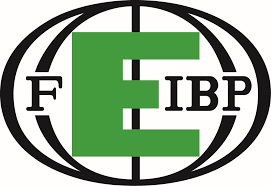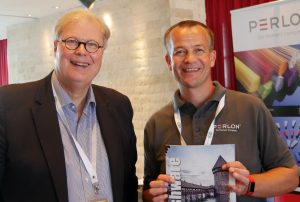FEIBP Working Group: Paint Brushes January
 COVID-19 Update
COVID-19 Update
During the evening of January 19, 2021, Chancellor Angela Merkel announced the new regulations on the pandemic. Restrictions are on-going, with the lockdown in Germany being extended until February 14, 2021. Experts from science, medicine and research had met in an advisory committee and finally, a result was communicated from the federal government. Chancellor Angela Merkel appeals to companies to let their employees back to the home office more. “It’s tough,” Merkel says, “What we have to expect people to do once again. But we have to take the situation into account. To protect people and also to protect the economy.”
FEIBP Paint Brushes Working Group
On the morning of January 19, 2021, the FEIBP Paint Brushes Working Group held its virtual meeting. A group of company representatives from European manufacturers and trading companies had accepted the invitation of General Manager Fons Ceelaert from the FEIBP European Brushware Federation and joined together digitally. Among the participants were Andrew McIlroy (D), Fons Ceelaert (NL), Pierre Simler (F), Mark Samuel (UK), Charles Bentley (UK), Carlo Pogliani (I), Thorsten W. Stollberg (D), Eberhard Hörz (D), Thomas Holland-Letz from the Fachverband Werkzeugindustrie (D).
Ceelaert welcomed McIlroy with warm congratulations on becoming the new FEIBP President.
From the beginning the discussion focused on the global problem of COVID-19 and its economic impact on the EU brush industry. The numbers of the pandemic are worrying in Europe and worldwide. And now, the mutation of the virus is raising new concerns. Despite intensive hygiene and protection

measures and a hopefully soon stabilizing vaccination situation in all European countries, an easing of the situation is not yet in sight for Europe.
On the whole, there is a continuing, and in some cases relaxed, lockdown throughout Europe, and no reduction measures expected in the near future. Extensive travel restrictions and uncertain lead times continue to make general business planning and strategy a challenge. In the manufacturing sector, in particular, it is almost impossible to have employees work from home.
Part-time work is only a limited possibility to adapt to the general situation. Across Europe, the economic situation is also extremely problematic, especially for retailers and service providers.
Industry Adapts But Shipping Costs Are Rising
However, it became very clear at the meeting that companies in the industry in all countries are adapting to the political requirements with a high degree of flexibility in their product and personnel policies. Despite travel restrictions, close contacts are maintained with suppliers and customers and promised deliveries are kept. For raw materials, for example from China, there are bottlenecks despite the willingness of the Chinese to deliver. Delivery times are stretching and shipping costs have skyrocketed in recent months.
“A trip to China is impossible right now,” says Eberhard Hörz from DKSH. “Fortunately, we get all orders delivered; however, it is difficult to price with the current cost situation with enormously increasing sea freight costs and rising Chinese currency Renminbi YUAN.”
Perlon’s McIlroy noted the fall in prices of raw materials in 2020, due to a lack of demand. Since the last quarter of 2020, prices have been on the rise again and are returning to pre-COVID levels.
On the shipping topic, he says, “The cost of container shipments is higher than ever in all countries.” And to compound the issue, there is delayed onward transport of the goods by freight train or truck, for example from Rotterdam to the buyers.
Due to the current state of the pandemic, Mark Samuel regretfully reported that a significant price increase for fine hair is to be expected and he fears increasingly scarce availability.
In the meantime, the Brexit agreement has been concluded. Samuel spoke about the impact of the agreements between England and the EU. He hopes that the situation will stabilize in a short time. “There is confidence on all sides,” Fons Ceelaert emphasized, “that the new import and export regulations will hopefully continue to allow the smoothest and most duty-free exchange of goods between European countries and England.”
Securing Young Talent
One issue that was close to the hearts of the virtual meeting participants is securing young talent. “There is hardly any new blood in our industry,” says Thorsten Stollberg (Wistoba). It’s the same in France, agreed Pierre Simler (President of FFB, the French association), and also in Italy, added Carlo Pogliani (Linea Stradal).
“We are all looking for young people to work for us, but it’s a pity,” said Stollberg, “Interest in the brush and paint brush industry is low and no one obviously knows how innovative our industry really is.“
Training at the Bechhofen Master School is professional and offers the opportunity for young people to learn the basics of this traditional industry and earn the title of master craftsman. The industry has now developed from the original craft into a high-tech business and that fact should be communicated even more strongly to young people. The brush and paint brush industry operates throughout Europe with a high level of expertise in materials science, mechanical engineering, engineering and design. And there is a great willingness to invest, especially in the development of future-oriented manufacturing methods and technologies.
Meeting participants looked to go beyond traditional training and strive to make the next generation curious about the industry, noting that outside of the COVID-19 pandemic the issue is the number challenge for the sector.
This topic may be ‘after Covid’ one of the most important in the European brush and paintbrush industry.


